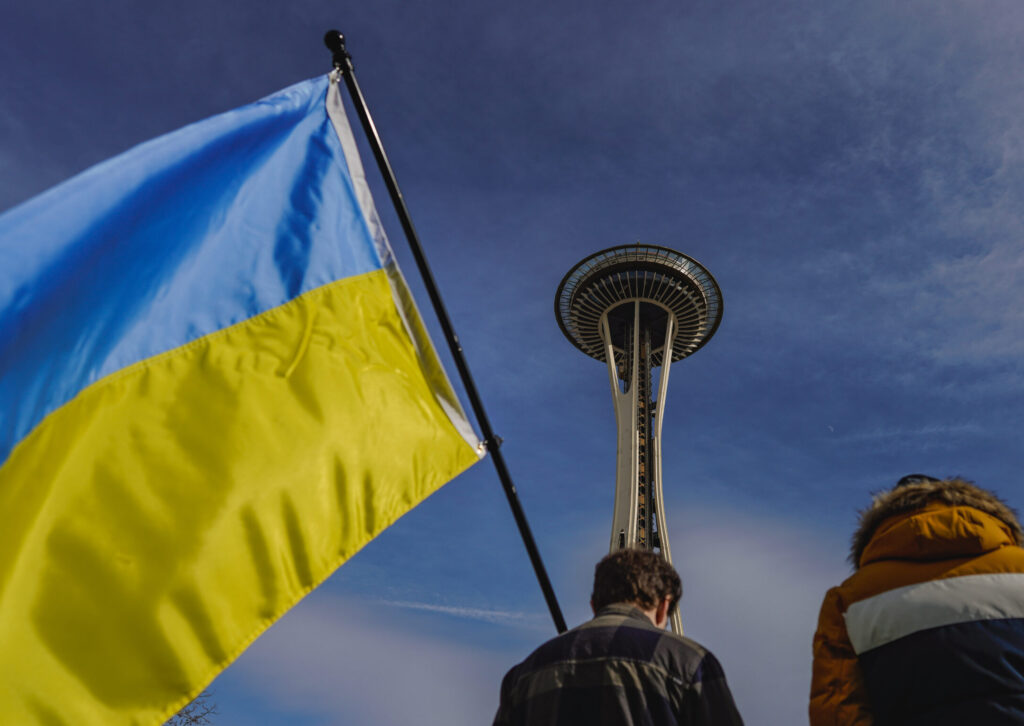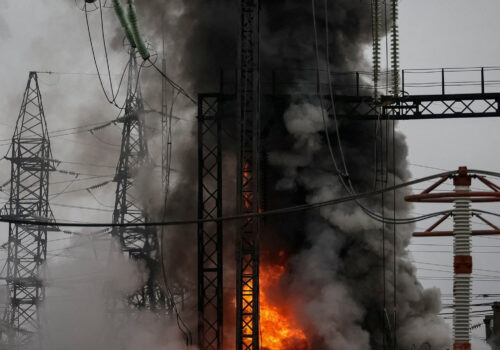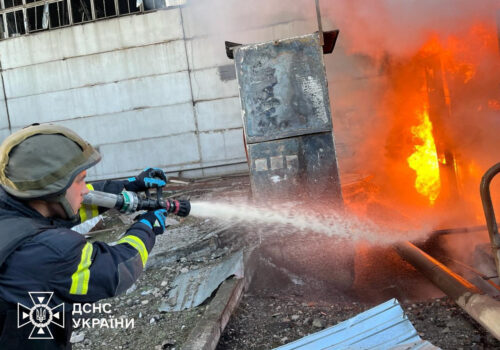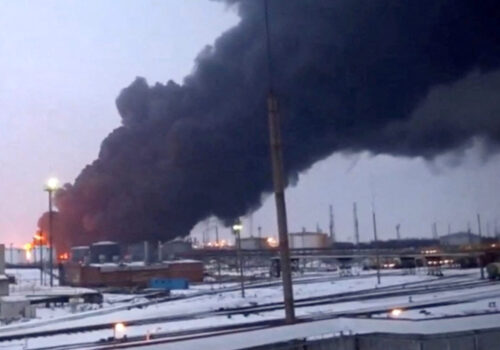Amid growing uncertainty over the future of international aid for Ukraine, diplomatic initiatives at the local and regional levels can play a critical role in securing continued public support around the world for Ukraine’s struggle against Russian aggression. These grassroots efforts, also known as subnational diplomacy, can go far beyond merely symbolic support, and have the potential to strengthen economic, cultural, and political ties between Ukraine and the country’s international partners.
Kyiv Oblast and the US state of Washington recently took a major step in this direction. In March 2024, Washington State Governor Jay Inslee and his Kyiv Oblast counterpart Ruslan Kravchenko signed the first Sister State Agreement between a US state and a Ukrainian region.
Washington’s Sister State Agreement with Kyiv Oblast is emblematic of the benefits that robust subnational diplomacy can provide. In Ukraine’s case, subnational diplomacy creates opportunities to highlight the strengths of Ukraine’s many diverse regions. Strong local and regional partnerships can also be maintained regardless of the changing political winds that envelop national capitals.
Stay updated
As the world watches the Russian invasion of Ukraine unfold, UkraineAlert delivers the best Atlantic Council expert insight and analysis on Ukraine twice a week directly to your inbox.
The recently signed agreement with Kyiv Oblast was not the start of Washington State’s efforts to support Ukraine. Since the early days of Russia’s full-scale invasion in February 2022, Washington has provided a powerful example of the role regional governments can play in responding to global events.
In March 2022, Governor Inslee directed state agencies to begin reviewing and severing ties with Russian state institutions and companies. In the initial weeks of the invasion, local nonprofits worked together with the state’s Ukrainian diaspora community to organize the delivery of 32 tons of medical supplies to Ukraine. During 2022, Washington State officials allocated nearly $20 million to support the influx of Ukrainian refugees.
According to the Seattle Times, more Ukrainian refugees have arrived in Washington State over the past two years than any other US state. This warm welcome owes much to the state’s vibrant Ukrainian-American community, according Geoffrey Potter, director of international relations and protocol for Governor Jay Inslee. He says the new Sister State Agreement and Washington’s other efforts to support Ukraine are “an expression” of the way local residents with Ukrainian roots have become an integral part of the Washington community.
Eurasia Center events

Ukraine’s honorary consul in Seattle, Valeriy Goloborodko, believes the Sister State Agreement will pave the way for closer ties and can help “further relationships between academics, industries, and regional governments for the benefit of the people.” Meanwhile, Potter notes a number of common interests linking the Kyiv region and Washington including clean energy, forestry, and the aerospace industry.
As wartime Ukraine looks ahead toward the challenges of recovery and reconstruction, subnational diplomacy can open up a range of new business opportunities. Major Washington State-based business brands including Boeing and Microsoft are already active in Ukraine. The state’s many small businesses are also playing an important role in strengthening ties. In Tacoma, Washington-based SAFE Boats is currently outfitting eight patrol boats destined for Ukraine’s navy. BRINC Drones, based in Seattle, is supplying drones for Ukraine’s fight against Russian aggression.
At a time when the issue of vital military aid for Ukraine has become hostage to domestic US political tensions, grassroots relationships can help individual Ukrainian regions bypass the kind of obstacles that might otherwise hamper progress at the national level. With this in mind, Ukraine’s regional leaders and their counterparts across the globe should now be seeking to develop stronger subnational ties that can solidify relationships for the long term.
Washington State’s agreement with Kyiv Oblast offers an attractive model that others can follow, both in the US and beyond. In Goloborodko’s view, the recently signed Sister State Agreement “is a way to show leadership in supporting democracy.” The initiative is the first of its kind for a US state, but Potter is “pretty sure” it will not be the last. “We’re forging a model for what a meaningful, substantive collaboration looks like,” he says.
Benton Coblentz is a program assistant with the Atlantic Council’s Eurasia Center.
Further reading
The views expressed in UkraineAlert are solely those of the authors and do not necessarily reflect the views of the Atlantic Council, its staff, or its supporters.

The Eurasia Center’s mission is to enhance transatlantic cooperation in promoting stability, democratic values and prosperity in Eurasia, from Eastern Europe and Turkey in the West to the Caucasus, Russia and Central Asia in the East.
Follow us on social media
and support our work
Image: A protester waves the Ukrainian flag while marching through the Seattle Center during the demonstration. Democracy protesters gathered at Seattle Center to mark the one-year anniversary of Russia's invasion of Ukraine. The event, organized by local Ukrainian-American groups, drew participants from across the region that came together to demand an end to Russian aggression. (Photo by Chin Hei Leung / SOPA Images/Sipa USA)




